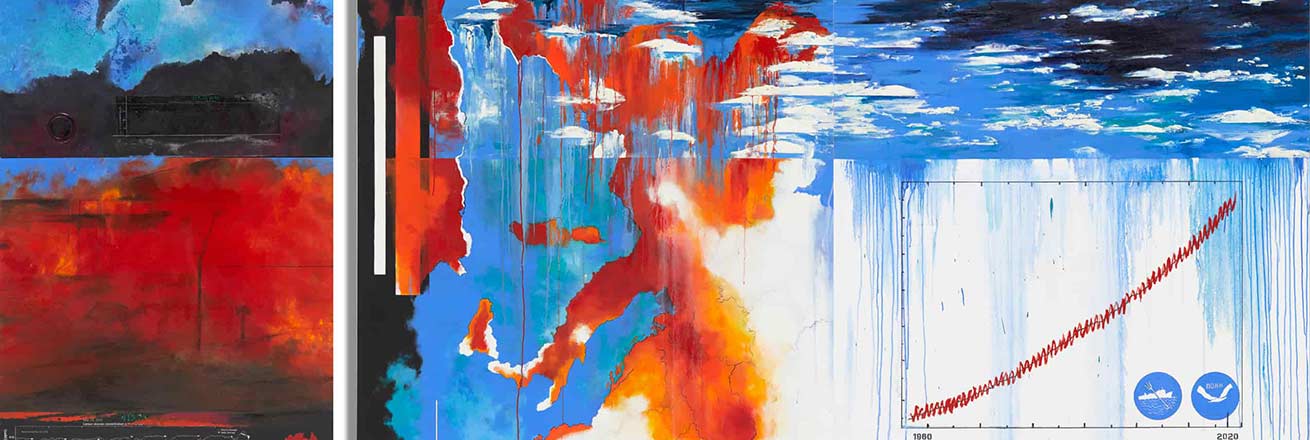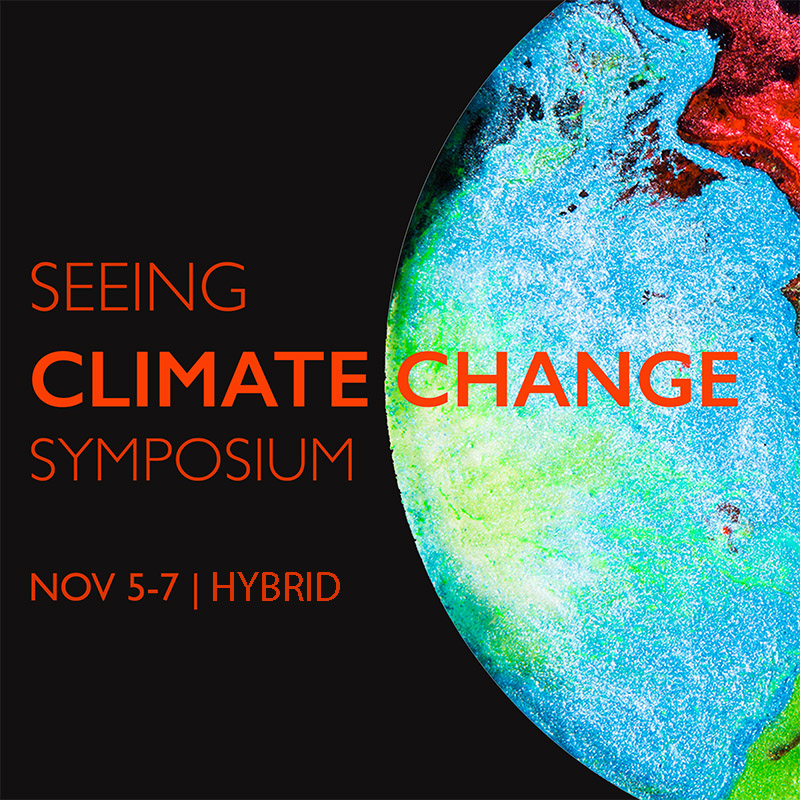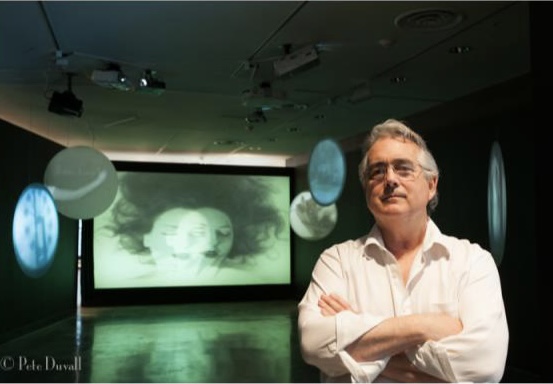Contact Us
Watch the Conference
Catch up with the Seeing Climate Change Symposium.
Videos in this playlist
To play a specific video, use the playlist icon in the player or view each video on YouTube.
-

AUcollege
Exhibition Opening Panel Discussion
-

AUcollege
Session I: Who Sets the Climate Agenda
-

AUcollege
Session II: Making Change—Voices in Climate Action
-

AUcollege
Lunchtime Keynote Speaker: Dr. Mustafa Santiago Ali
-

AUcollege
Session III: Making Climate Change Visible
-

AUcollege
Closing Keynote Speaker: Devi Lockwood
-

AUcollege
Artist Talk with Jaimes Mayhew
Friday, November 5
AU Museum Open Hours
11:00 a.m. – 5:00 p.m.
AU Museum at the Katzen Arts Center
Patrons are encouraged to visit the exhibition, Diane Burko: Seeing Climate Change, 2002-2021
American University Museum Exhibition Discussion Panel
5:00 p.m. – 6:30 p.m.
YouTube Live Stream & Abramson Family Recital Hall, Katzen Arts Center
Join artist Diane Burko and others for a discussion about art and climate change. We will hear about the inspiration behind the making of her climate change-themed art, the opportunities and obligations for artists in the climate age, and the connections between the production of art and the production of social action. The conversation will be moderated by Jack Rasmussen, Director and Curator of the AU Museum at the Katzen Arts Center, with opening remarks by Dean Max Paul Friedman, AU College of Arts & Science.
Panelists Include:
- Diane Burko, artist
- Eleanor Heartney, art critic and author
- Jennifer McGregor, Curator and Arts Planner
AU is additionally honored to present recorded remarks by Bill McKibben, environmentalist, author and journalist.
Saturday, November 6
Who Sets the Climate Agenda?
9:00 a.m. – 10:15 a.m.
YouTube Live Stream
There are many different possible ways to see and understand climate change. Who gets to decide how climate change is represented? What are the implications for how climate change is viewed and addressed? Our guests will consider the roles played by the media, visual arts, and science when it comes to representing climate change, explore the contestation and struggle over what climate change is and means, and help us understand what’s at stake in seeing climate change. This conversation will be moderated by Megan Litke, Director of Sustainability at American University.
Panelists Include:
- Andrew Revkin, environmental journalist
- Devi Lockwood, author
- Olufemi Taiwo, philosopher
Making Change—Voices in Climate Action
10:45 a.m. - 12:00 p.m.
YouTube Live Stream
The Seeing Climate Change symposium is being held to coincide with the annual international climate meeting under the UN Framework Convention on Climate Change, this year to be held in Glasgow, Scotland. Domestically, the Biden administration has an ambitious climate change action agenda, and states, cities, corporations, and citizens are responding to climate change with new urgency. In this session we’ll hear about the realities of and prospects for, and explore the roles of art and science in giving shape to, meaningful climate action. This conversation will be moderated by Jeffrey James, Weekend Host, WAMU 88.5 and Co-host, The Climate Daily podcast.
Panelists Include:
- William Snape, Assistant Dean, American University College of Law
- Kahlil Kettering, Bezos Earth Fund Project Director, The Nature Conservancy
- Suzanne Hunt, Sustainable agriculture, climate, and energy investment and policy advisor
Lunchtime Keynote Speaker: Dr. Mustafa Santiago Ali
12:30 p.m. – 1:45 p.m.
YouTube Live Stream & Hall of Science Discovery Hall
Join Dr. Mustafa Santiago Ali for a discussion about climate change action. Dr. Ali is the Vice President of Environmental Justice, Climate & Community Revitalization for the National Wildlife Federation (NWF) and also the Founder & CEO of Revitalization Strategies. This conversation will be moderated by Sylvia Burwell, President of American University.
AU is additionally honored to present recorded remarks by Jennifer Morgan, Executive Director at Greenpeace International.
Making Climate Change Visible
2 p.m. – 3:15 p.m.
YouTube Live Stream
In this session we will hear from a variety of people who produce climate-themed art and/or have the production or use of art at the center of their climate-oriented work. Panelists will explore the interface between art, science, and policy, discussing how their work exists at this interface and charting a course toward even more productive engagement. This conversation will be moderated by Maggie Stogner, Executive Director of the AU Center for Environmental Filmmaking.
Panelists Include:
- Lauren Bon, artist
- Jesse Ribot, scholar of environmental justice and artist
- Monica Jahan Bose, artist, lawyer, activist
- Signe Wilkinson, editorial cartoonist
Closing Keynote Speaker
3:30 p.m. - 4:45 p.m.
YouTube Live Stream & Hall of Science Discovery Hall
Join us as we close out the day with an address by Devi Lockwood. Devi is the author of 1,001 Voices on Climate Change: Everyday Stories of Flood, Fire, Drought, and Displacement from Around the World that was published in Summer 2021 and is currently the Ideas Editor for Rest of World.”
Sunday, November 7
Artist Talk with Jaimes Mayhew
10:00 a.m. – 11:00 a.m.
YouTube Live Stream
Jaimes Mayhew will give an artist talk highlighting some of his projects that are concerned with climate change and environmentalism, and how art can play a role in our understanding of climate change.
Green Tours of Campus
11:00 a.m. – 12:00 p.m.
American University Campus and Online
For those unable to visit campus, AU’s Office of Sustainability has produced a Virtual Sustainability Tour. Once you are able to visit campus, the Office of Sustainability has a Sustainability Story Map that is mobile-friendly, and can be used as a self-guided tour. This option is suitable for individuals or small groups.
Speakers
Jesse Ribot
Jesse Ribot
he/him/his
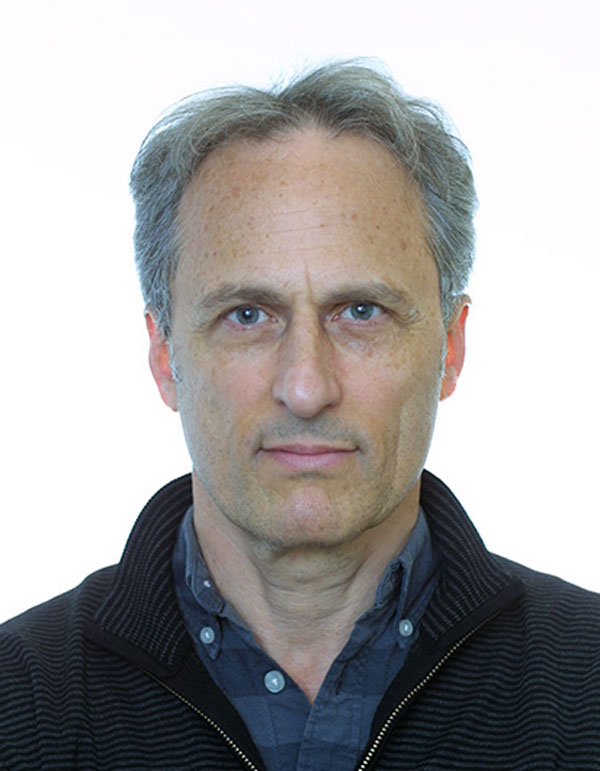
My current research is on the social and political-economic causes of precarity and social suffering in natural-resource-dependent communities. I explore these problems through case studies of struggles over natural resource access, attempts to establish local democracy, and communities at risk in the face of climate stress. My fieldwork has been in the West African Sahel – mostly in Eastern Senegal. I have also conducted comparative studies across Africa and in Asia and Latin America. I like to recount the findings of my research through books, articles, films, policy briefs, editorials, rhyming stories, sculpture, teaching and lectures.
I come to this work with a background in physics and linguistics, followed by training in energy and environmental policy, and then in human geography. I have served on faculties of geography, anthropology and environmental studies. I draw mostly on the methods of sociology, anthropology and geography. Since August 2018 I am on the faculty in the School of International Service at American University in DC.
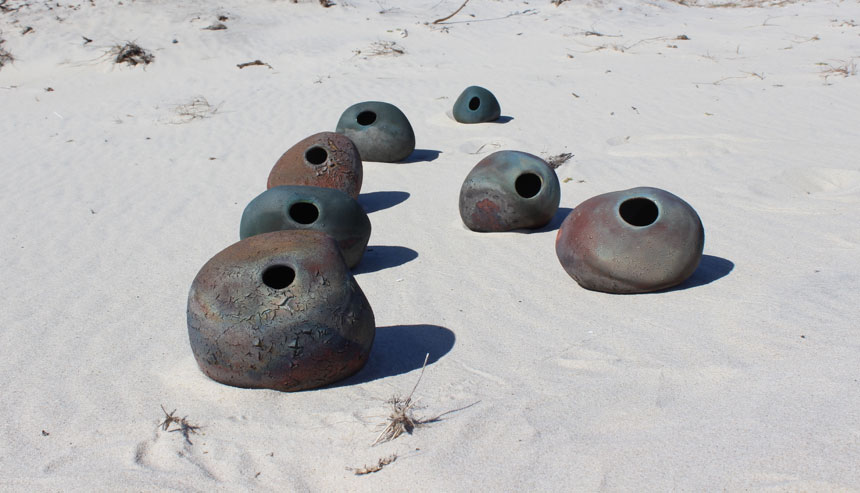
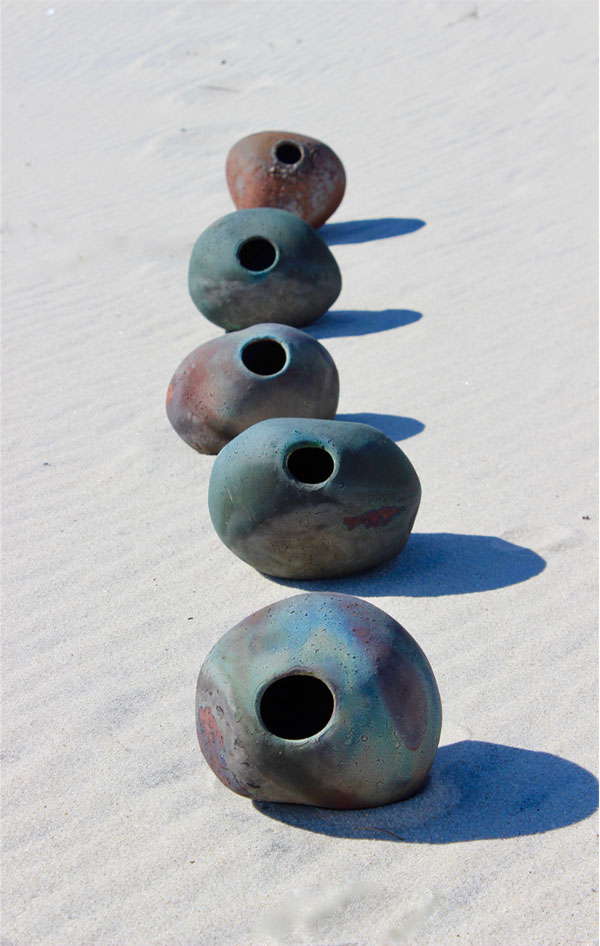
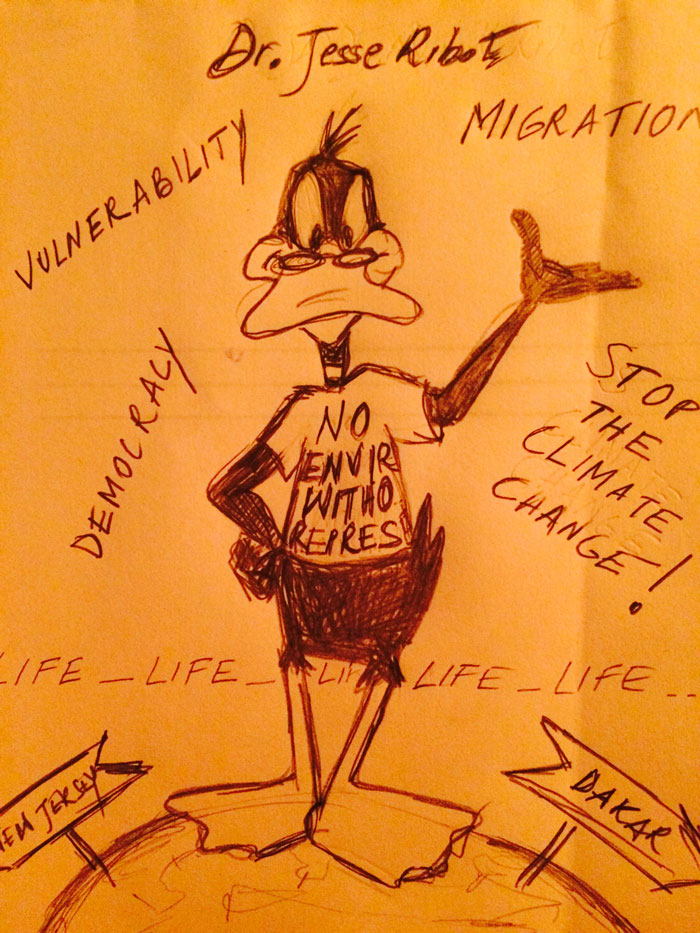
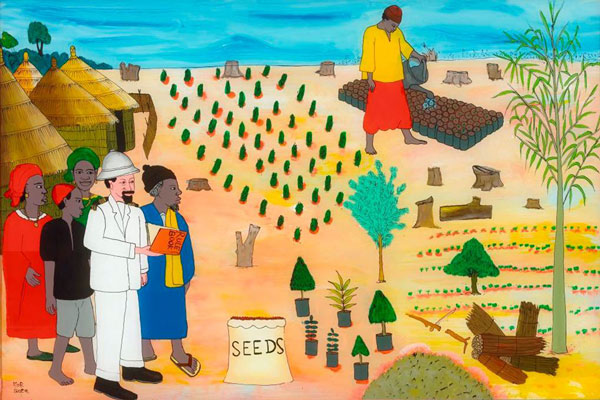
Eleanor Heartney
Eleanor Heartney
she/her/hers
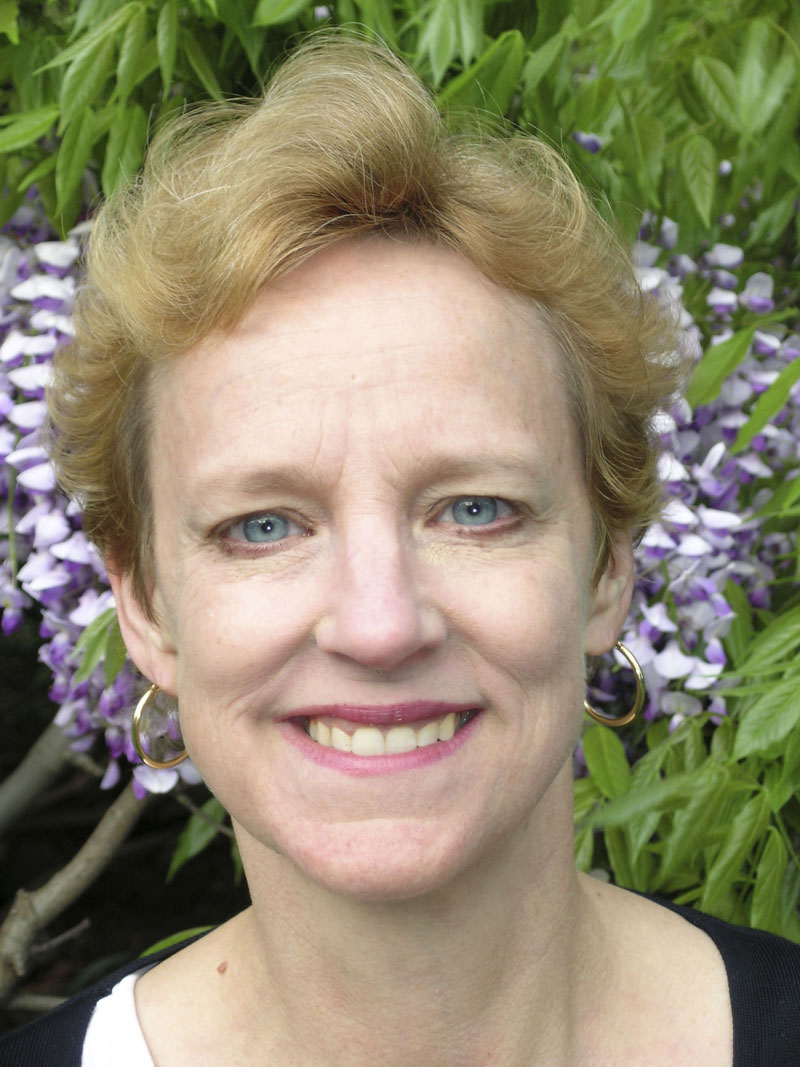
Eleanor Heartney has been an art writer and curator for over 35 years. In her numerous books and articles and in her role as contributing editor to Art in America, she has written frequently on the social role of art and the ways that it intersects with politics, religion, gender, globalism and the environment. She has made in depth studies of many of the major figures in the environmental art movement and is currently contributing a study of eco-feminist art to a forthcoming book on contemporary art’s debt to the pioneering feminist artists of the 1970s. She is also the curator of Anil Revri: Into the Light, currently on view at the Katzen Arts Center.
In my work as an art critic over the last 35 years, I have followed the ever-deepening relationship between art and environmental action. Working both behind the scenes and in conjunction with scientists, planners and environmental activists, artists have played an important role in raising awareness of the urgency of the climate crisis. This panel will offer a forum for exploring that role, using the inspiring work of Diane Burko as a springboard for a discussion of art’s potential to help change the conversation around this most urgent of issues.
Maggie Stogner
Maggie Stogner
she/her/hers
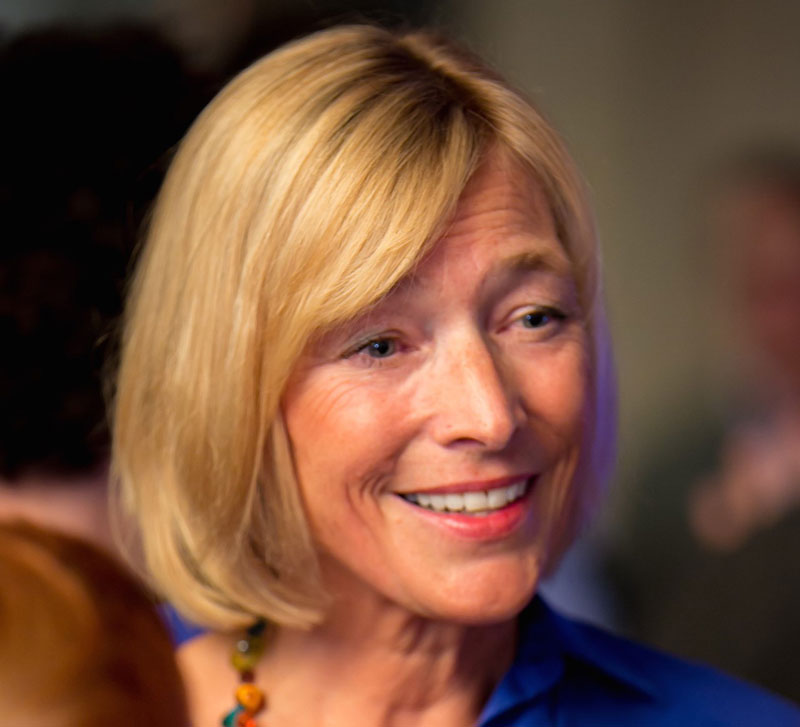
Maggie Burnette Stogner is the Executive Director of the Center for Environmental Filmmaking and a professor of Film and Media Arts at American University in Washington, DC. She brings over 30 years of filmmaking experience to the Center and to the classroom. She was on staff at National Geographic TV & Film for nearly a decade where she produced, directed and wrote numerous documentaries, and was senior producer of the award-winning series EXPLORER. In 2005, she launched the independent media company Blue Bear Films, creating films and immersive media for world-touring cultural exhibitions for National Geographic, the Smithsonian, LucasFilms, and others. She creates documentaries and outreach campaigns that inspire and inform, including the award-winning "Unbreathable—the Fight For Healthy Air" (2020), "In the Executioner's Shadow" (2018), “Gold Mountain” (2016), and others. Her leadership at the Center For Environmental Filmmaking seeks to empower media makers to be advocates for our planet and catalysts for positive change. CEF builds diversity and equity through its programs, experiential learning, and inclusive filmmaking. Through its research, the Center propels a leading vision for creative, collaborative and outreach strategies for nature, environmental, and science storytelling.
There is no room for doom and gloom. Our climate crisis requires finding solutions. We can do that by sharing our human stories, bridging our differences, and working together as a community.
Instagram: @maggiebluebear
Maggie Stogner on Facebook
Jeffrey James
Jeffrey James
he/him/his
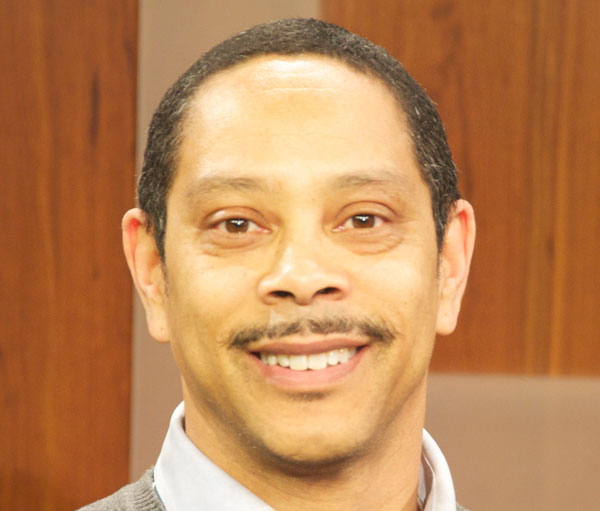
Weekend Host, WAMU 88.5FM—“Washington’s NPR News Station.”
Co-host, “The Climate Daily” podcast—bringing you news of people and organizations taking to combat climate change, and delivered to you in about 8 minutes. Available wherever you get your podcasts.
CEO/Co-founder, The Climate, Inc.—a woman and minority-owned, independent non-profit media platform dedicated to bridging the Hope Gap between despair and action on all things climate change with by featuring people and groups working on climate change mitigation, adaptation and resilience strategies in their communities, while also amplifying BIPOC and ADA climate change subject matter experts and journalists.
Co-founder, Veteran Compost Residential—full service, residential food scrap compost service that picked up all food scraps (meat, eggs, bones and vegetative matter); composted them on two farms. Prior to selling it, we diverted 695,000 pounds of food waste from DMV landfills during the three years we ran it.
Co-founder, iLiveGreen Foundation. Non-profit dedicated to teaching middle and high school students about the importance of planting trees to combat climate change. Operated for two years before closing. Educated over 75 students and planted 10,000 trees from sales of green hemp wristbands.
I'm here because I wish to shift the direction of the climate crisis so my worst fears don't come to pass.
Twitter, Instagram, Facebook: @wetheclimate
Kahlil Kettering
Kahlil Kettering
he/him/his
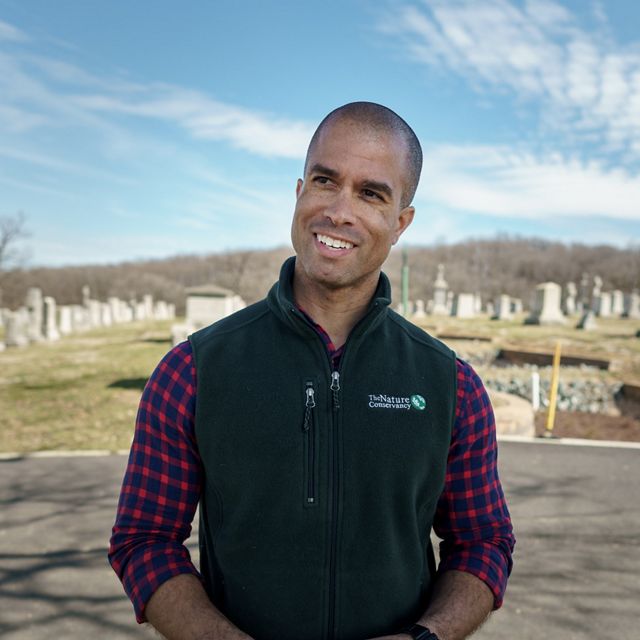
Kahlil is the Bezos Earth Fund Project Director for The Nature Conservancy. In this role he provides strategic management and oversees all TNC deliverables associated with the $100M Bezos Earth Fund gift. He serves as the point person for oversight of the entire grant working with project teams around the globe to collaboratively deploy and scale natural climate solutions to capture greenhouse gas emissions.
Prior to this position Kahlil served as the inaugural Urban Conservation Program Director for the Maryland/DC Chapter from 2015-2021 where he developed conservation strategies in Washington, D.C., centered on implementing projects that elevate the intersection of protecting nature in urban areas and the benefits nature provides to people in cities.
This involved building momentum for the first ever stormwater retention credit trading program in D.C. by using natural solutions, like rain gardens and bioswales, that absorb stormwater and reduce runoff into the Anacostia and Potomac Rivers. In addition to tackling stormwater runoff, Kahlil also worked on strategic tree canopy expansion, and engaging young people as environmental advocates for the future.
Kahlil holds a Bachelor’s degree in International Studies from American University, a Master’s degree in Global Environmental Policy from American University, and a Master’s degree in Nonprofit Management and Leadership from the University of Maryland.
Jaimes Mayhew
Jaimes Mayhew
he/him
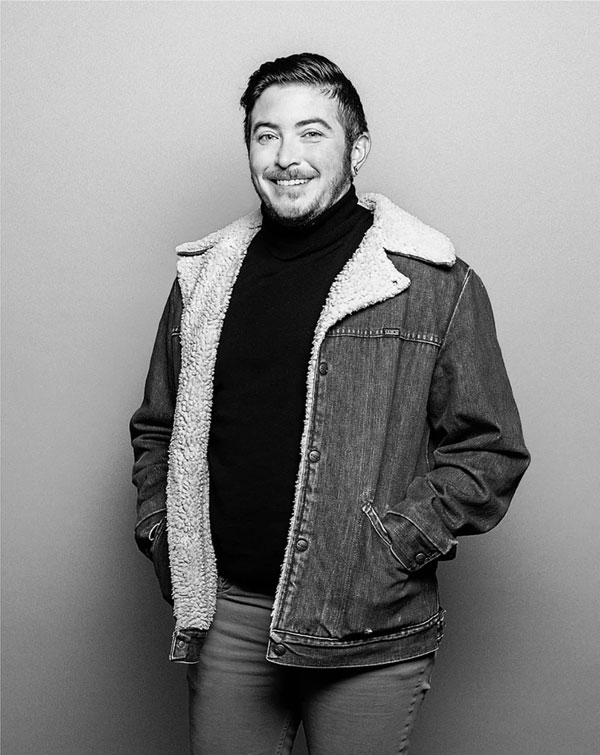
Jaimes Mayhew makes participatory, interdisciplinary work that addresses identity and how it is expressed through land use, speculation and ecology. From installation, photography and video to fiber art and performance, Mayhew’s work is conceptually tied together through experimentations of queering relationships between humans, places and things. Mayhew has exhibited nationally and internationally, and reviews of their work have appeared in Hyperallergic, Art Papers, and The Creators Project, among others. An article about Mayhew’s work titled “Performing Trans Ontology: The Body (and Body of Work) of Jaimes Mayhew” was published in the academic journal Frontiers: A Journal of Womens Studies in late 2020. His work has been been shown nationally and internationally, and he has received awards and grants from The Fulbright Commission of Iceland, The Saul Zaentz Innovation Fund, The Contemporary Baltimore’s Grit Fund, The Maryland State Arts Council, the Baltimore Museum of Art and Provisions Library. Mayhew holds an MFA in Intermedia and Digital Art from University of Maryland Baltimore County and a BA in Film from Emerson College. He currently teaches graduate and undergraduate classes in the Studio Art program at American University.
Dr. Mustafa Santiago Ali
Dr. Mustafa Santiago Ali
he/him
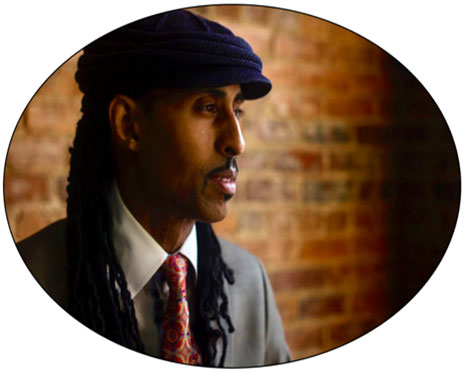
A renowned thought leader, international speaker, policy maker, community liaison, trainer, and facilitator, Dr. Mustafa Santiago Ali wears many hats, he is the Vice President of Environmental Justice, Climate & Community Revitalization for the National Wildlife Federation (NWF) and also the Founder & CEO of Revitalization Strategies. Before joining the NWF Mustafa was the Senior Vice President for the Hip Hop Caucus, a national, non-profit and non-partisan organization that connects the Hip Hop community to the civic process to build power and create positive change. As HHC Senior Vice President, he led the strategic direction, expansion, and operation of the Hip Hop Caucus’ portfolio on Climate, Environmental Justice and Community Revitalization.
Prior to joining the Hip Hop Caucus, Mustafa worked 24 years at the U.S. Environmental Protection Agency (EPA). He began working on Social Justice issues at the age of 16 and joined the EPA as a student, becoming a founding member of the EPA’s Office of Environmental Justice (OEJ). He most recently served as Senior Advisor for Environmental Justice and Community Revitalization and Assistant Associate Administrator working to elevate environmental justice issues and strengthening environmental justice policies, programs, and initiatives. Mustafa worked for EPA Administrators beginning with William Riley and ending with Scott Pruitt.
Throughout his career, Mustafa has conducted more than 1,000 presentations across the country, including speeches, guest lectures, and training. He has also worked with more than 500 domestic and international communities to secure environmental, health and economic justice. Mustafa uses a holistic approach to revitalizing vulnerable communities helping them to move from Surviving to Thriving.
Frequently seen on TV, including MSNBC, CNN, VICE, BET, Samantha Bee and Democracy NOW
Featured and/or cited in over 250 news publications to date, including GQ, New Republic, Ebony, Bustle, The Guardian, The Root, Los Angeles Times, and the Washington Post.
Guest lecturer at over 100 colleges and universities, including Howard, Harvard, Yale, Berkley, Duke, George Washington, Georgetown, Spelman.
Former instructor at West Virginia University, and Stanford University.
Mustafa currently serves a board member on Robert Wood Johnson Foundation, Union of Concerned Scientist, TREE, Rodenberry Foundation and Climate Hawks Vote.
Current co-host of the live radio show and podcast, Think 100% “The Coolest Show On Climate Change” with Grammy Nominated Singer and Actress Antonique Smith & Civil Rights Icon, Rev Lennox Yearwood.
Jack Rasmussen
Jack Rasmussen
he/him
Jack Rasmussen earned his BA in Art from Whitman College in Walla Walla, WA, before completing an MFA in Painting, MA in Arts Management, and MA and PhD in Anthropology at American University. He worked in the Education Department of the National Gallery of Art and became Assistant Director of the Washington Project for the Arts when it opened in 1975. He left this position to open the Jack Rasmussen Gallery, helped launch Rockville Arts Place (VisArts), served ten years as Executive Director of Maryland Art Place, and three years as Executive Director of di Rosa in Napa, California. Rasmussen has been Director and Curator of the American University Museum since it opened in 2005. He currently serves on the board of the Maryland State Arts Council.
American University’s Year of Climate Action has just begun. It builds on the University’s commitment to engage faculty, staff, and the community at the intersection of scientific insight, artistic imagining, political struggle, and public searching. It is a call to action against the existential threat of climate change.
Monica Jahan Bose
Monica Jahan Bose
she/her/সে
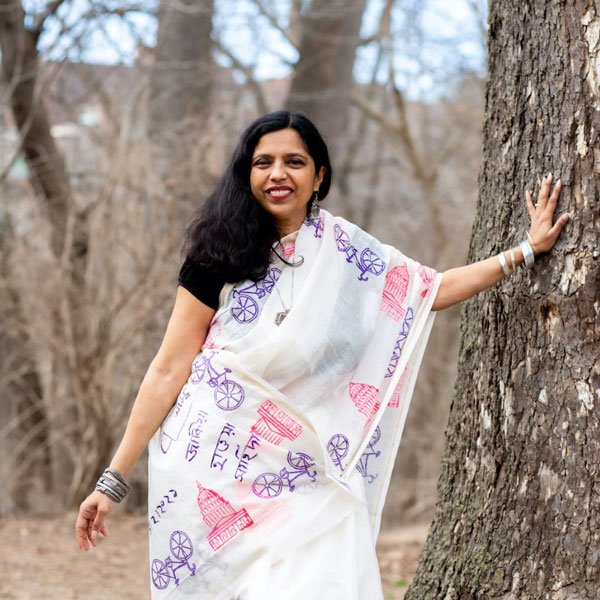
Monica Jahan Bose is a Bangladeshi-American artist and climate activist whose work spans painting, printmaking, performance, film, and interdisciplinary projects. Her social practice work highlights the intersection of climate, racial, gender, and economic injustice through co-created workshops and temporary public art installations and performances. Her solo projects and performance/installations have been presented at such venues as the MACRO Contemporary Art Museum (Rome), the Bangladesh National Museum, Art Asia Miami, Twelve Gates Gallery, the Brooklyn Museum, the DUMBO Arts Festival, (e)merge art fair, SELECT Art Fair Miami Beach, UNESCO (Paris), and the Smithsonian APA Center (Honolulu). She has received numerous grants, awards, and public art commissions.
Bose is the creator of STORYTELLING WITH SARIS, a long-term art and advocacy project with her ancestral village of Katakhali, Bangladesh. She partnered with the International Center for Climate Change and Development to present a climate knowledge sharing and adaptation workshop in Katakhali. Her work has appeared in the Miami Herald, the Washington Post, Art Asia Pacific, the Milwaukee Sentinel, the Honolulu Star Advertiser, the Japan Times, and all major newspapers in Bangladesh. She has a BA in the Practice of Art (Painting) from Wesleyan University, a post-graduate Diploma in Art from Santiniketan, India, and a JD from Columbia Law School.
We all need to be talking about and seeing climate change. Collaborative art that connects us to others and enhances community is critical to addressing the climate crisis. It can catalyze action on climate by making us feel empowered to make a difference.
Twitter: @monicajahan @storywithsari
Instagram: @mjbose @storywithsari
William Snape
William Snape
he/him
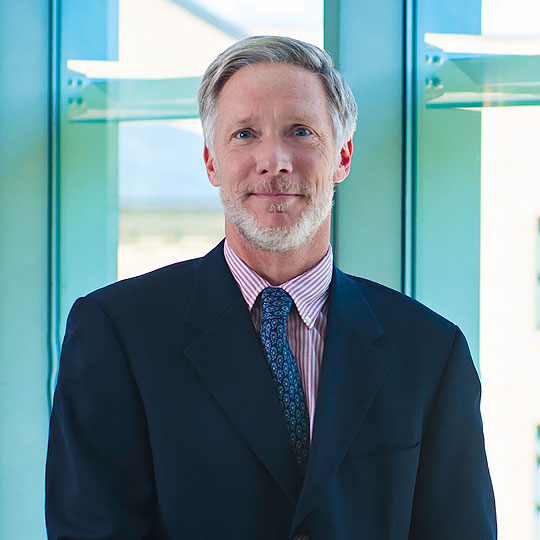
Snape has litigated a number of environmental and related cases in federal court, and argued Center for Biological Diversity v. Interior at the DC Circuit, which rejected the federal government’s plan for oil and gas drilling off the coast of Alaska in part because of climate change concerns. Snape is the author of numerous articles on natural resource issues, including the book Biodiversity and the Law published by Island Press. His public interest work currently focuses upon environmental justice advocacy at the state level, serving as board general counsel to the United States Climate Action Network, and litigating an active federal docket under the Freedom of Information Act (FOIA). In Summer 2020, Snape was named director of WCL’s Program on Environmental and Energy Law (PEEL).
He is a magna cum laude graduate of the Honors College at the University of California, Los Angeles, and received his law degree from George Washington University. Snape is a masters’ swimmer and water polo player, has coached at both the Division I and Division III levels of college swimming, and was named the 2011 world swim coach of the year by the International Committee of Sports for the Deaf. At Gallaudet University, he was four-time conference swim coach of the year. He still advocates on behalf of deaf athletics, including a successful legal petition to the NCAA in 2017 that changed the swimming competition rules to accommodate both visual and audial starting cues.
Global warming and associated climate change are so big they are not merely legal, scientific, or policy issues – the crisis is literally existential and, thus, global warming is also social, cultural and psychological. If we want change in how our energy is produced, we must capture both hearts and minds. And, unfortunately, we have lost a lot of time because the fossil fuel industries have been successfully placing false narratives in the mainstream media for decades. When we boil this down to its essence (with solar power of course), it becomes clear that today’s younger generations hold the key to true change. It won’t be easy but it will certainly be sweet when we all succeed.
Twitter: @snapebison
Instagram: @profsnapebioswim
Diane Burko
Diane Burko
she/her/hers
Diane Burko’s exhibition, Seeing Climate Change: Diane Burko 2020-2021 is the inspiration for this Symposium.
Her work operates at the intersection of art and the environment, fueled by concerns about climate change.
Burko’s artistic practice began by focusing on monumental geological phenomena. To that end, she’s investigated locations on the ground, underwater and in the air from open-door helicopters and planes using cameras, drones and sketchpads. Traveling from the temperate zones of the Americas to Western Europe, from rain forests to glaciers, from active volcanoes to coral reefs and deserts, her art merges a vision that is at once panoramic, intimate and sometimes provocative. Such experiences augment her ongoing study of the natural world inspiring studio production, resulting in over 100 exhibitions throughout the country. Her work can be found in the collections of The Art Institute of Chicago, Denver Art Museum, Hood Museum, Michener Art Museum, Minneapolis Institute of Art, National Academy of Sciences, Pennsylvania Academy of the Fine Arts, Philadelphia Museum of Art, and the Zimmerli Museum to name a few.
Fifteen years ago, Burko redirected her landscape practice totally to issues of climate change. She started with glacial melt and sea level rise, then to concentrated on our ocean’s coral reef ecosystems and is currently concentrating on the Amazon Rain Forest as well as drought and forest fires in the USA. She believes she can contribute to the public dialogue by learning from researchers in the field, bearing witness to the actual phenomenon and then processing that knowledge visually. “I see myself as a subversive artist, creating compelling images which in turn inform the public of the dire threats facing our planet.”
Born in Brooklyn, Burko graduated Skidmore College with a B.S. in art history and painting. She earned an MFA in painting at the University of Pennsylvania. Burko was a professor at Community College of Philadelphia from 1970 until 2000, also teaching at Princeton University, ASU, and PAFA. In 1974, she founded FOCUS: Philadelphia Focuses on Women in the Visual Arts. From 1976 to 2012 she was represented by the Locks Gallery in Philadelphia. She has been awarded residences in Giverny France, the Rockefeller Conference and Study Center at Bellagio, Italy and in Svalbard by the Arctic Circle.org group. She has received 2 NEA Artists grants, 2 PA Council on the Arts Grants, the Lifetime Achievement Award by the WCA/CAA, an Independence Foundation award and the Fleisher Art Memorial Founders award in 2019.
Climate change affects us all. From Siberia to Lytton to Bootleg, the human race is already suffering drastically from extreme weather disasters such as flooding, heat and drought. I endeavor to bring this crucial issue to light through images rather than words.
My inclination to witness, translate, and communicate scientific information is expressed through my paintings is how I personally and professionally counter climate doubt – it’s my way of entering into the public discourse with the goal of moving the viewer to reflect, take responsibility and act.
More information can be found on Diane's Website
Twitter: @dianeburko
Devi Lockwood
Devi Lockwood
she/her/hers
Devi Lockwood is the author of 1,001 Voices on Climate Change, a book published by Simon & Schuster in August. Previously she worked as an editor and writer at the New York Times Opinion section. She spent five years traveling in 20 countries on six continents to document 1,001 stories on water & climate change.
I'm looking forward to exchanging ideas about how we can jumpstart the climate conversation in a way that brings more voices into the conversation.
Twitter: @devi_lockwood
Instagram: @devi_lockwood
Jeffrey James Madison
Jeffrey James Madison
he/him
Weekend Host, WAMU 88.5FM—“Washington’s NPR News Station.”
Co-host, “The Climate Daily” podcast—bringing you news of people and organizations taking to combat climate change, and delivered to you in about 8 minutes. Available wherever you get your podcasts.
CEO/Co-founder, The Climate, Inc. (https://www.theclimate.org)—a woman and minority-owned, independent non-profit media platform dedicated to bridging the Hope Gap between despair and action on all things climate change with by featuring people and groups working on climate change mitigation, adaptation and resilience strategies in their communities, while also amplifying BIPOC and ADA climate change subject matter experts and journalists.
Co-founder, Veteran Compost Residential—full service, residential food scrap compost service that picked up all food scraps (meat, eggs, bones and vegetative matter); composted them on two farms. Prior to selling it, we diverted 695,000 pounds of food waste from DMV landfills during the three years we ran it.
Co-founder, iLiveGreen Foundation. Non-profit dedicated to teaching middle and high school students about the importance of planting trees to combat climate change. Operated for two years before closing. Educated over 75 students and planted 10,000 trees from sales of green hemp wristbands.
I'm here because I wish to shift the direction of the climate crisis so my worst fears don't come to pass.
Twitter, Instagram, Facebook: @wetheclimate
Jennifer McGregor
Jennifer McGregor
she/her
Jennifer McGregor is a curator and arts planner who brings expertise in ecological art, curating/programing, and public art planning to artist-centered work. For over two decades she conceived place-based exhibitions at Wave Hill, a world-renowned public garden & cultural center in the Bronx. There she activated connections to the environment by producing adventurous projects that explored nature, culture & site, including Seven Deadly Sins: Wrath Force of Nature that featured paintings by Diane Burko. Through McGregor Consulting she collaborates with a range of clients and collaborators develop strategies to engage non-traditional public spaces, diverse audiences with dynamic artists.
Diane Burko's work makes visible the daunting environmental challenges that we face and provides a call to action through the Seeing Climate Change exhibition and the accompanying multi-disciplinary symposium.
Diane Burko is part of a growing cadre of artists whose intrepid exploration and communication across disciplines informs works that animate and move us to understand the critical changing climate that we face.
Instagram: @jennifer_jo_mcgregor
Jennifer McGregor on facebook
Jennifer Morgan
Jennifer Morgan
she/her
Jennifer Morgan is a leading expert on climate issues and civil society advocacy. Voted by Apolitical as one of the world's top 20 most influential people in climate policy, Morgan is currently the Executive Director of Greenpeace International. As well as managing the organisation, Jennifer is a public figure who represents Greenpeace in the media, and at moments ranging from UNFCCC meetings and the World Economic Forum, to strikes, marches and rallies around the world.
Involved in climate change issues for over twenty years, she has held a series of directorship roles of climate programmes at non-governmental organisations, including World Resources Institute (2009-2016); E3G (2006-2009) and WWF (1998-2006). She has participated in every COP meeting since the first in Berlin in 1995, and was a Review Editor for the 5th Assessment Report of the Intergovernmental Panel on Climate Change (IPCC). Jennifer serves on the Advisory Board to the Grantham Institute on Climate and the Environment.
Previously, she served on the German Council on Sustainable Development and was a member of the Scientific Advisory Board of the Potsdam Institute for Climate Impact Research. At Germanwatch's 20th anniversary celebration, Jennifer was named an honorary member of the organisation for her long-term commitment to international climate issues and the empowerment of civil society. She holds a Bachelor of Arts from Indiana University in Political Science and Germanic Studies, and a Master of Arts from the School of International Service at The American University in International Affairs. Jennifer is based in Amsterdam, The Netherlands.
As an alumna of the School of International Service at the American University, it is an honor to be part of The Seeing Climate Change symposium. We are in a critical moment for people and planet. Now is the time to act, and we do so with the power of science and people. To act is to be hopeful, courageous and compassionate. Together we can shake off our polluting value-based system that only favours the very few, and realize a world full of true values.
Twitter: @climatemorgan
Jennifer Morgan on LinkedIn
Signe Wilkinson
Signe Wilkinson
she/her
Signe Wilkinson recently retired after 35 years as the nationally syndicated cartoonist for the Philadelphia Daily News and Philadelphia Inquirer where she drew on all the fun subjects: guns, war, inequality, women's rights, education, free speech, privacy and, repeatedly, the fate of our natural world. To pay for art school in the 1970s, she worked at the Academy of Natural Sciences in Philadelphia where scientists were working to understand and protect all manner of living things. Her many environmental cartoons spring from their dedicated efforts. Her most recent publications are "Herstory: 19 Cartoons in Celebration of the 19th Amendment" (2019) and this year's collaboration with UPenn history professor Jonathan Zimmerman on "Free Speech and Why You Should Give a Damn".
Cartoons can, in a second's glance, leave viewers with an indelible image of our earth dripping in oil spills, animals losing their homes to bulldozers, or energy execs pocketing the profits from pollution. Not everyone can read a scientific paper on global warming but they can instantly get a kick out of a global warming cartoon. Perhaps even a kick into action. Use more cartoons!
Twitter: @SigneWilk
Instagram: @SigneWilk
Signetoons Website
Email: signetoons@gmail.com

